6 pioneers of prog rock drumming
The drummers who changed the face of rock forever
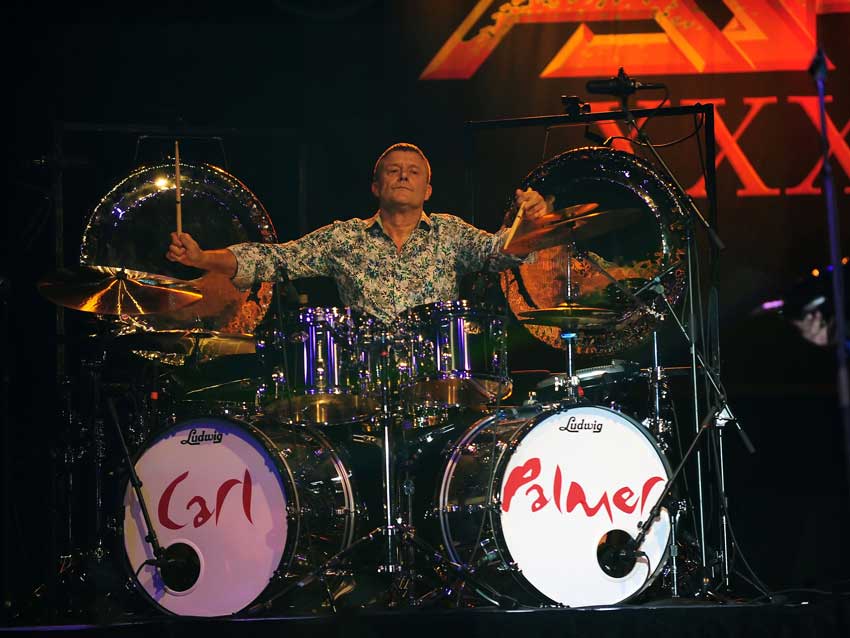
Carl Palmer
“Prog rock is an English art form, a bit like jazz is to the Americans. This is an art form which we created here in England” – Carl Palmer
Carl Palmer joined keyboardist Keith Emerson and King Crimson bass player Greg Lake to form Emerson Lake and Palmer. ELP brought the trio’s classical influences to the fore to tackle compositions like Mussorgsky’s ‘Pictures At An Exhibition’ and Alberto Ginastera’s ‘Toccata’. Says Palmer, “We were quintessentially English so things like ‘Pictures At An Exhibition’ we had all heard at school or played in the school orchestra. We were a keyboard-driven band, so we were more on the classical side of life than blues or rock. Obviously we were kind of metal when we started, we were quite heavy and that gave it the rock element, but all those things fell naturally into place.
“As the music progressed with ELP, I developed the drumset,” he tells Rhythm. “The first electronic drum solo was on ‘Toccata’ on the Brain Salad Surgery album. These were synthesisers which were made for me, they were the size of a cigar box and each one could produce a sound. Have a listen to Ginastera’s ‘Toccata’ on the Brain Salad Surgery album. A lot of people at the time, journalists especially, thought it was just Keith playing away.”
Here's Carl’s ‘Tank’ solo from 1977
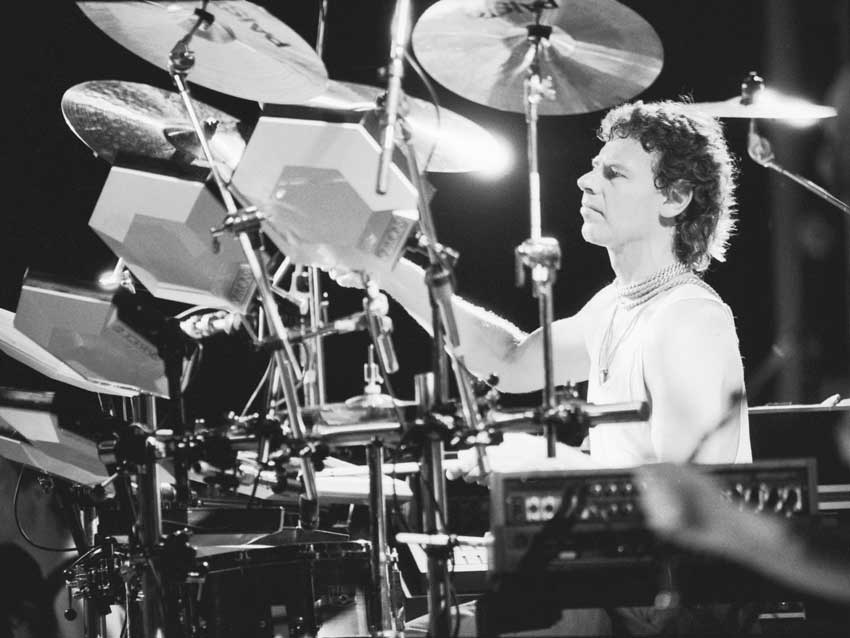
Bill Bruford
"[The essential qualities of the prog rock drummer are] unwavering time, thick skin, nifty technical capacity, endless patience, some ability with odd meters, a list of great ideas and a clear view of how to revolutionise drumming for the next decade” – Bill Bruford
Bill Bruford recorded five albums with Yes between 1969 and 1972 as their music became increasingly ambitious, from the five-minute songs on their debut to the 18-plus minutes of the title track from Close To The Edge, which filled the entire first side of the LP. “There was a push to expand the boundaries of everything, much to the horror of the ‘three-chords-and-a-backbeat’ proponents of rock,” says Bruford. “When I signed up in 1968 a lot less drumming had been done, so it was relatively easy to be fresh. I fashioned together something that was one third Max Roach – effortless, melodic – one third Art Blakey – big hi-hat, great tom sound – one third Joe Morello – odd meters – and transplanted those components to a different genre, rock. Seemed to work, mostly.”
Back in 1989, Bill and co put on an evening of all things Yes –here's a blistering bit of percussive majesty from Bill.
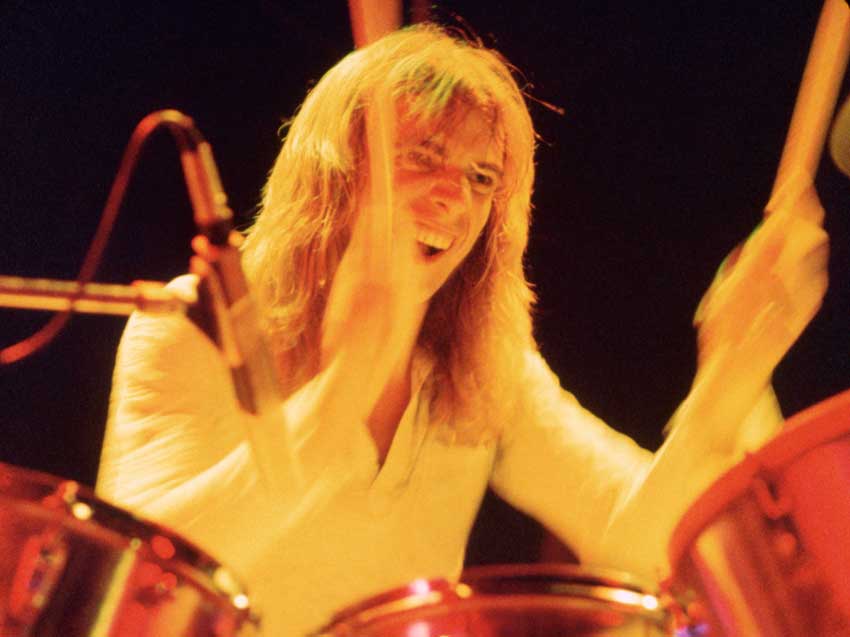
Alan White
“The key to playing great progressive music is to listen to the rest of the band, play what is necessary and not play something alien to the part so it’s distracting” – Alan White
When Bill Bruford jumped ship to King Crimson, Yes offered the drum seat to Alan White. “One of my greatest influences was Frank Zappa, the way he orchestrated his band and some of the pieces of music they played were absolutely fantastic,” says White. “At that time, when I was about 18, 19, way over my head but that’s what got me interested in trying to learn that kind of stuff and developing some kind of style like that. Yes came from that whole breed of bands that were always looking for a new sound, like Genesis, ELP, Jethro Tull. There was a mould of groups there that were always searching for new horizons in music. That’s one thing I always said all through the whole time I’ve been in the band is Yes is a band that with every album we do we never look to the horizon, we try to look over the horizon to see what’s coming next.”
Here's Alan engaging in a ‘Whitefish’ duet with Chris Squire.
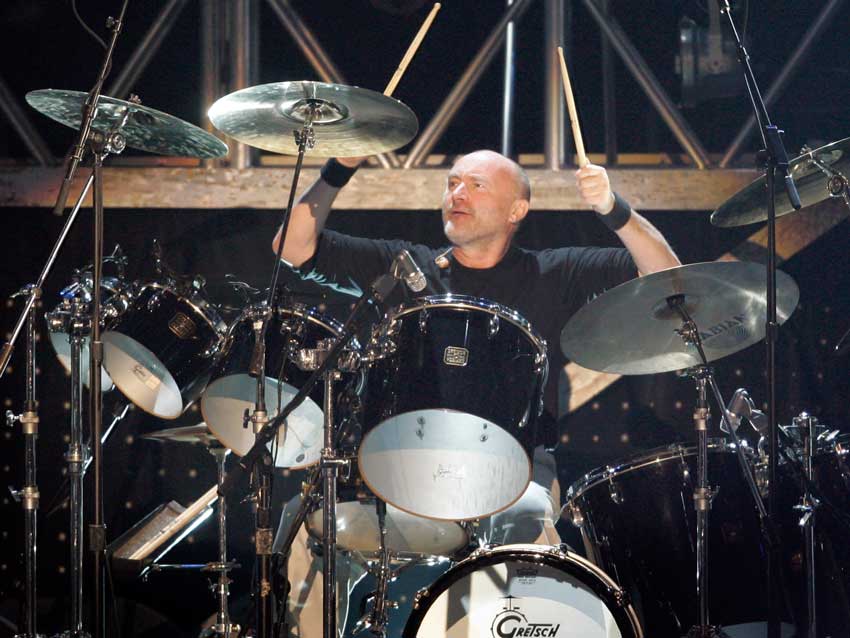
Phil Collins
“I think Selling England By The Pound is an enduring masterpiece of drumming. Beautiful drumming, lovely sound, and the arrangements, I think they really nailed the best of what that band as an entity could have done with that album” – Neil Peart on Phil Collins
Genesis starting out playing music that drew heavily upon the English choral and pastoral traditions on albums like Selling England By The Pound and Foxtrot, before they transformed into a more radio friendly group when drummer Phil Collins took on vocal duties following the departure of Peter Gabriel.
To free Collins from the kit and allow him to front the band live, Genesis recruited Bill Bruford and then Chester Thompson to handle the bulk of the drumming during concerts. However in the latter half of the ’70s, when not playing with Genesis, Collins could be heard playing jazz-fusion with the band Brand X.
Here’s Phil in action in 1990.
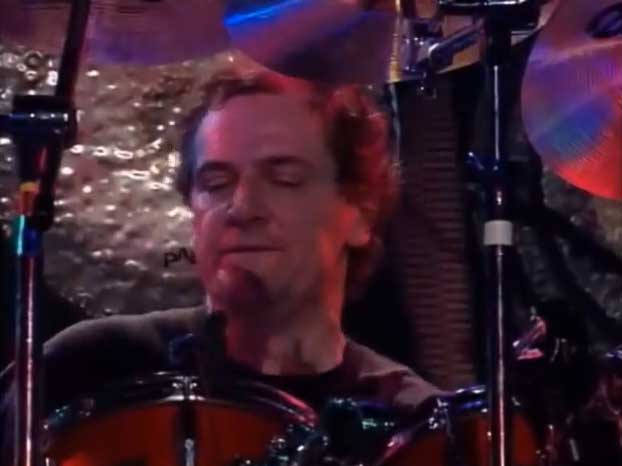
Jon Hiseman
“Progressive music probably has a lot more opportunities to play stuff that isn’t just grooving or keeping time, but in the end I’m not sure I see any real distinction. If you’re a good player surrounded by good musicians you will simply just go with the flow” – Jon Hiseman
“My collaborator Dick Heckstall-Smith thought that he was joining another blues rock band whenI invited him to join Colosseum, but I always had other ideas,” says Jon Hiseman, drummer in influential British jazz-rock pioneers Colosseum. “Right from the beginning I wanted to combine improvised solos with composed lines overlaid with vocals with intelligent words. The Valentyne Suite was a work that brought in elements from outside of the traditional blues/jazz/rock language – in other words, classical music.”
Within the band’s orchestral sound, Hiseman had jazz chops and rock power – a vital quality in the days when only the vocals went out through the PA system. But, says Hiseman, “I never really looked at the role of the drums in any specific kind of music. I simply always played my way, which was to try to get inside the music around me. As I always said to aspiring drummers, ‘Don’t play the drums, play the band.’"
Here’s an impressive bit of soloing from Mr Hiseman.
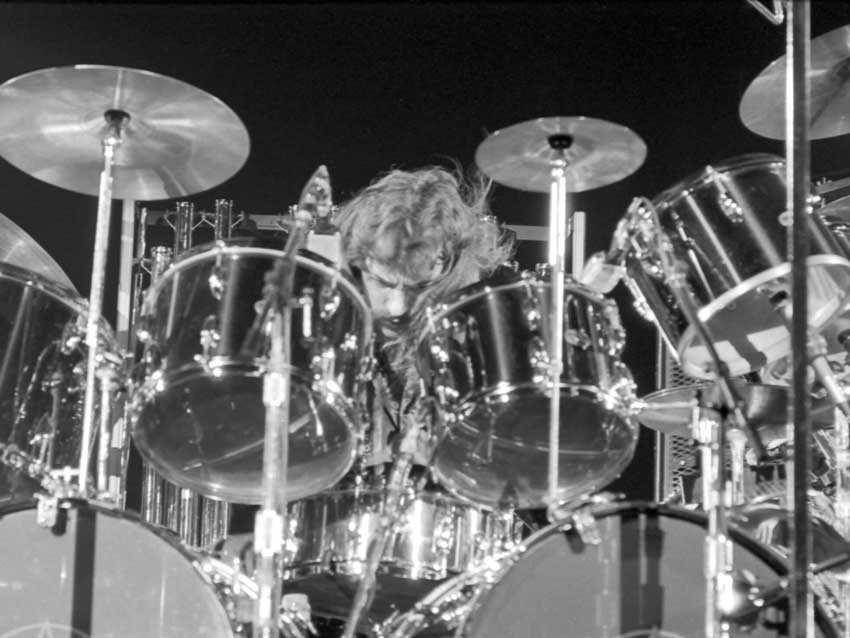
Neil Peart
"Amidst all the odd-time signatures, enormous kits and concept albums, in the end progressive drumming can be boiled down to just one simple idea – aim higher” – Neil Peart.
Neil Peart joined guitarist Alex Lifeson and bassist Geddy Lee in 1974 in time for Rush’s second album Fly By Night, released the following year. In the four decades since, Peart has maintained a tireless pursuit of drumming excellence that has inspired a legion of players seeking to emulate his accomplishments. Rush produced wildly ambitious works like the instrumental ‘La Villa Strangiato’ on the 1978 album Hemispheres – a cornucopia of odd time signatures, moving between common time, 7/8, 9/8 and 12/8. Peart and Rush were masters at working odd time passages even into their most accessible tracks like ‘Tom Sawyer’ (3/8, 7/8, 7/16) and ‘The Spirit Of Radio’ (3/4, 5/4, 9/16).
Says Peart, “Our band had no values but musical ones,” he says. “When anyone tried to give us commercial considerations, ‘Oh you need a single, or you should repeat that chorus three times,’ we were appalled. When we played with other bands that milked that side of things and just obviously pandered to the audience, we called it ‘The Sickness’ because we thought there was a purity that didn’t at the time seem pathetic and didn’t seem naive, it seemed right – this is the honest way to be. Really we just tried to make music we liked and hoped others would like it too. That seems almost pathetic, almost naive, but beautiful.”
Here's Neil and co playing ‘YYZ’.
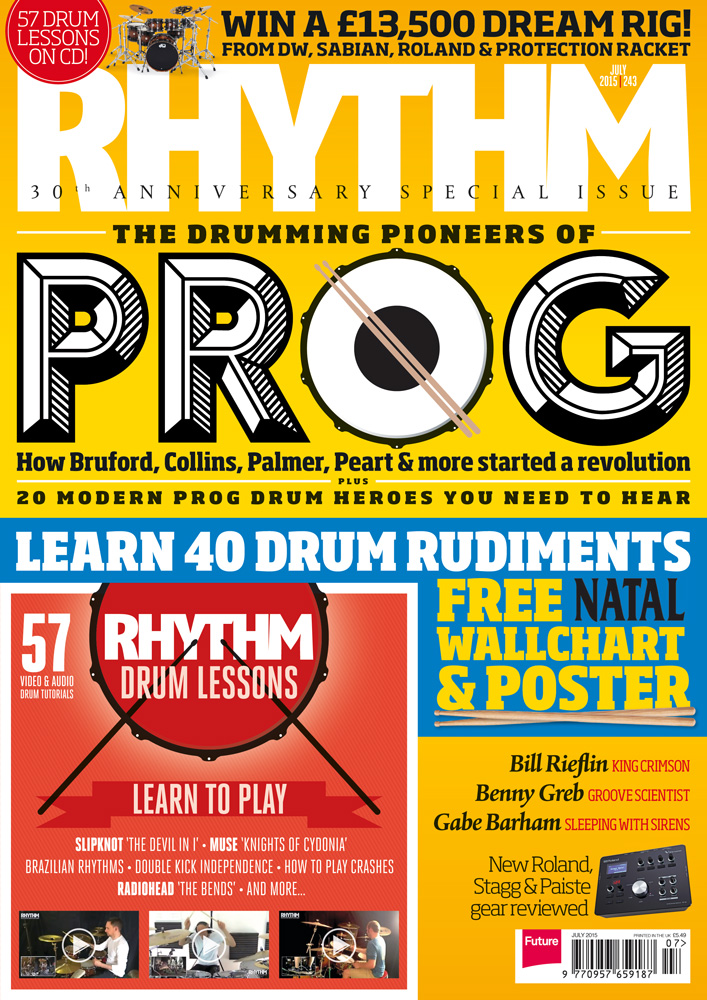
Pioneers of Prog Drumming
You can read Rhythm’s in-depth feature on the pioneers of prog rock drumming only in this month’s Rhythm. Neil Peart, Carl Palmer, Bill Bruford, Alan White and more talk about what prog drumming meant to them, and what it continues to mean in the 21st Century. Plus we round up the best prog drummers of this millennium! Only in July’s Rhythm!